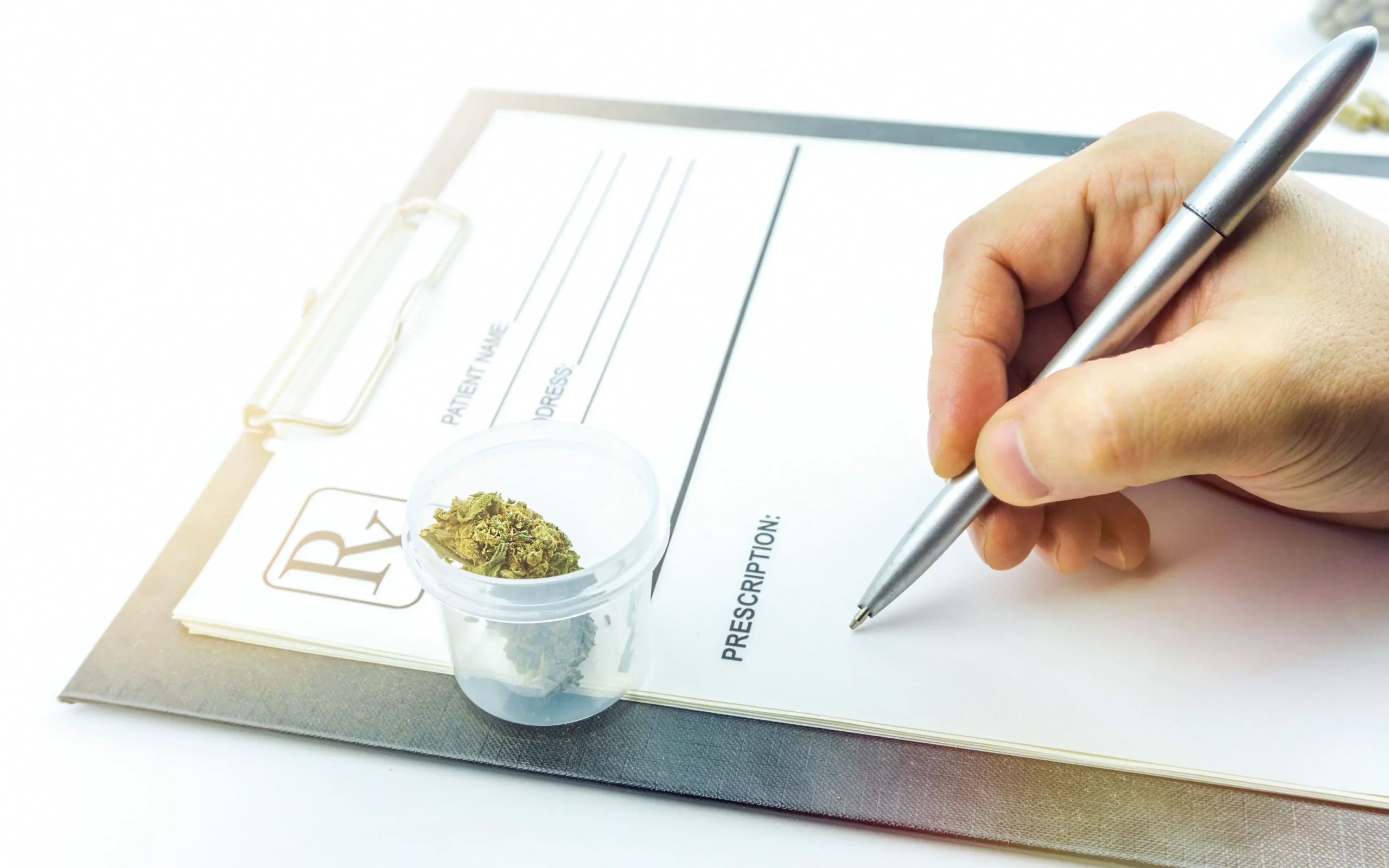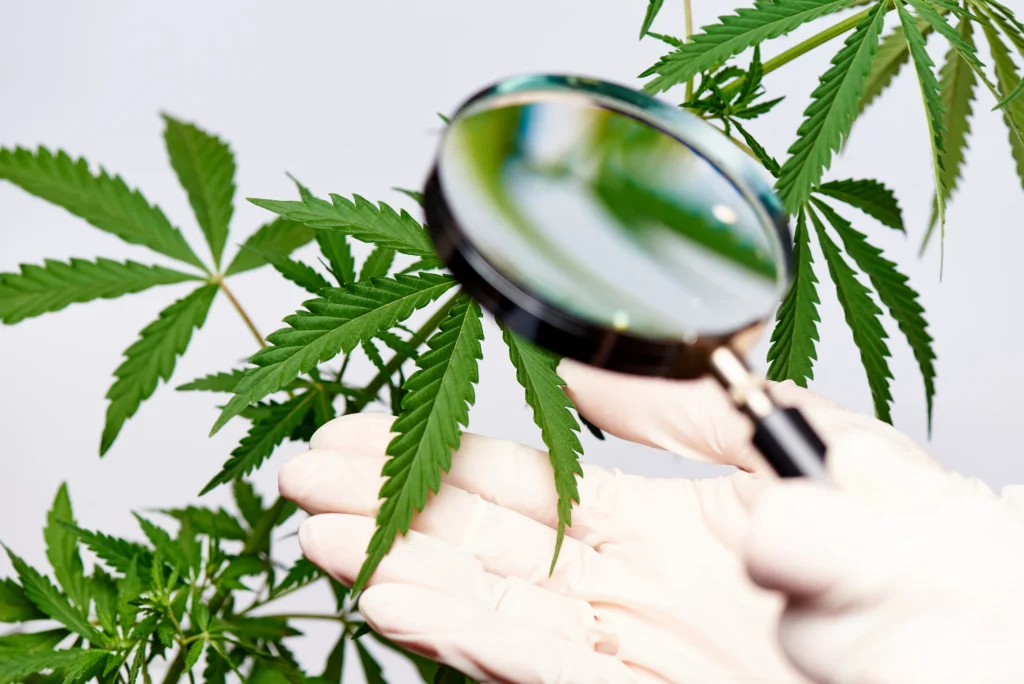A Definitive Guide to Compliance — California Cannabis Dispensaries
A Definitive Guide to Compliance — California Cannabis Dispensaries
Cannabis Retail Licensing
Cannabis Retail License Types:
- M: Allows for the sale of cannabis products to those aged 18 or older.
- A-U: Adult-use license types allow for the sale of cannabis products to adults ages 21 or older.
- Combo: Allows for both consumer-types to be serviced by one location. The tax regulations pertaining to each consumer-type doesn’t change for those operating under a combination license.
Individuals interested in opening a delivery service must consider the two different licenses that are offered to the public by the BCC. These two license types are broken down into M (Medicinal) and A-U (Adult-Use) licenses.
Those with a class M license may service individuals that have a state-approved MMICP enrollment. MMICP allows for individuals ages 18 and older to engage in the purchasing of cannabis products from retailers without paying the sales & use tax. However, this does not meant that they are exempt from the 15% state excise tax.
A-U license holders may engage in the recreational sale of cannabis products to individuals that are aged 21 and older. These clients must pay the excise tax of 15%, local tax, and sales tax. They are not exempt from taxes in the way that MMICP holders are.
Annual License Fees
Associated fees to obtain a cannabis retail license in California.
The latest regulations do not require for the entirety of the annual license fee to be paid until a business license for the applicant has been approved. Moreover, the fees associated with annual licenses have changed and are now based on a tiered system that depends on the amount of estimated annual revenue that is to be made.
Zoning:
Regulations state that there mustn’t be a reticle location within 600 feet of a pre-existing school, child care center, youth center, or any location where kids are prevalent in presence. Schools are defined as being limited to that of children in grades 1-12, although kindergartens and pre-school should be considered to fall under this umbrella.

Modification of Premises
The modification of any premises must be recorded and submitted to the BCC. This includes, but is not limited to the modification of entryways in a building, relocation of doorways, and serious modifications such as wall creation or removal. To stay safe on and err on the side of caution, be sure to record all of the modifications and have professional diagrams which show the progression of these changes.
Note: The latest regulation changes require submission of a Notification and Request Form, BCC-LIC-027
Receiving Shipments
Shipping Manifests are required per BCC regulations.
To accept shipments, cannabis retailers can chose to accept the entirety of a shipment or choose to reject part of the delivery. Goods that are different from what is on the invoice, damaged, or fall under non-compliant practices can be rejected and must be recorded into the METRC system.
Staff Requirements
21+ employees only!
Employees of any given retail location must at least 21 years of age or older. Other requirements for staff include the need for an identification badge to be worn at all times by staff. Badges must include the business’ name, license number, first name & employee number, and a color picture of the employee that is at least 1in. wide x 1.5in. tall.
Hours of Operation
9am – 10pm are common business hours!
A storefront retailer, or dispensary, must be open no sooner than 6am and finish conducting business on any given day by 10pm. It’s common for retail locations to operate between 9am – 10pm.
Limited Access Areas
Limited access areas should be reserved for employees & approved partners.
Limited access areas are to be utilized by employees of any given location and any approved contractor. Customers are not permitted to have access to this area—period.
Alarm System
There’s a plethora of commercial-grade alarm companies to choose from.
Must be capable of alerting staff immediately. Alarm features such as motion sensors and audio devices should be considered!

Locks
Commercial-grade locks are required by law!
Must be commercial-grade and non-residential. This means that using a household lock will not fall under regulations. Common practice is to have multiple locks for entrances and exits.
Video Cameras
You can never have too many video cameras to protect your dispensary.
Cameras used to monitor the premises must do so 24 hours a day at a minimum of 15 frames per second with a time and date stamp. Cameras should produce an image of 1280×720 pixel quality and be installed in permanent locations which have a 20-foot clear line of sight of each entrance/exit. Perspectives of the cameras should be from both the interior and exterior of the building. Limited access areas must be capable of being sen in video recordings as well as locations where cannabis products are packed, stored, loaded and unloaded for transportation, prepared, or moved on the dispensary premises.
Storing Video Surveillance
Videos should be kept for a minimum of 90 days and be housed in a secure, tamper-proof device with the ability of being copied for the BCC at any point in time.
Inventory Reconciliation
Consider doing weekly inventory reconciliation to stay up-to-date with purchasing trends while avoiding dispensary and delivery service fines!
A 3% inventory reconciliation buffer of the average monthly sales is acceptable per BCC regulations. Inventory management must be assessed and completed once every 30 days, although regular reconciliation is recommended! Be sure to have backups of every document as BCC inspections may occur at any point.
DISCLAIMER: The materials made available in this resource guide are for informational purposes only and not for the purpose of providing legal advice. You should contact your cannabis attorney to obtain advice with respect to any particular issue or problem!